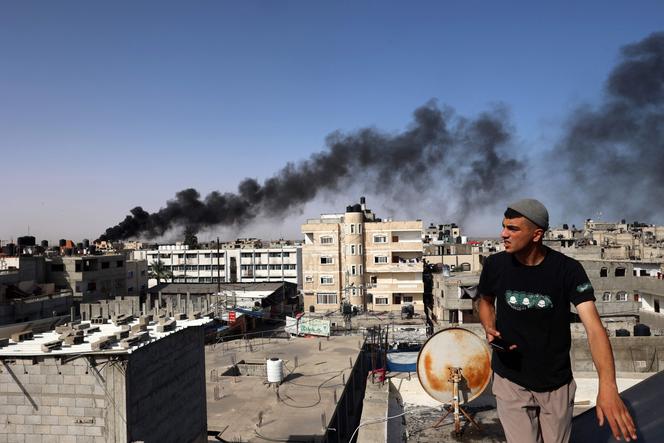


Will the International Court of Justice (ICJ) order Israel to "cease its military offensive" in Rafah, as South Africa has urgently requested? Referred to by Pretoria, the judges established on January 26 that there was a plausible risk that the rights of Palestinians to protection from the crime of genocide would be violated. On two occasions since then, they have issued rulings against Israel. "The very manner in which Israel is pursuing its military operations in Rafah, and elsewhere in Gaza, is itself genocidal. It must be ordered to stop," South Africa demands in its latest application, filed the evening of Friday, May 10.
The Israeli army's seizure of the two border crossings at Rafah and Kerem Shalom on May 6 does not signal a simple escalation of the conflict, Pretoria argues in its petition to the judges. "With Rafah's destruction, the destruction of Gaza itself will be complete," making "the survival" of Palestinians impossible there. Israel now has "total control" over what enters and leaves Gaza, South Africa notes. Rafah is the "last refuge" for some 1.5 million Gazans there but the operation has "seal[ed] Gaza hermetically from the outside world, further crippling the delivery of aid to and within" the enclave.
Shortly before the Rafah operation began, Palestinians received evacuation messages for the Al-Mawasi area in the Khan Yunis Governorate, already "largely reduced to 'rubble'" by Israel, "uninhabitable" according to South Africa, with "people living crowded in tents" and also targeted by Israeli fire. By Sunday, some 300,000 people had been displaced.
South Africa points to the "extreme risks" for those unable or unwilling to move again. The lawyers recall the testimonies of Israeli soldiers recently published in the daily newspaper Haaretz, recounting how the evacuation zones were treated "as 'zones of extermination' in which all remaining Palestinians are considered to be legitimate targets."
It is also urgent to preserve this evidence, says Pretoria, which is asking the judges to order Israel to allow entry into Gaza for foreign journalists and international investigators. On Friday, the United Nations Security Council reticently "underlined" the importance of unhindered access by investigators to the mass graves discovered after the military operations against the Nasser and Al-Shifa hospitals in Gaza City. According to Pretoria, "over 390 bodies have been discovered (...) showing signs of torture and summary executions."
You have 46.56% of this article left to read. The rest is for subscribers only.
